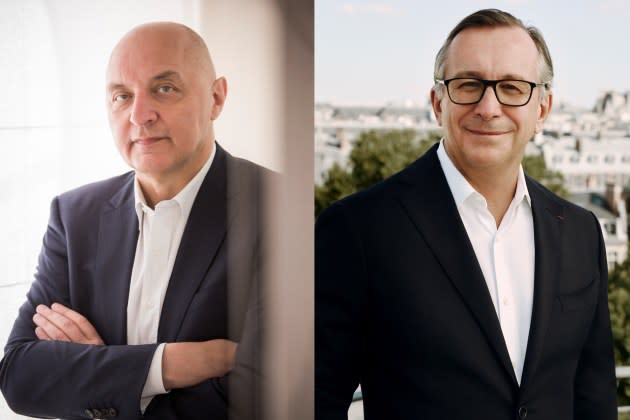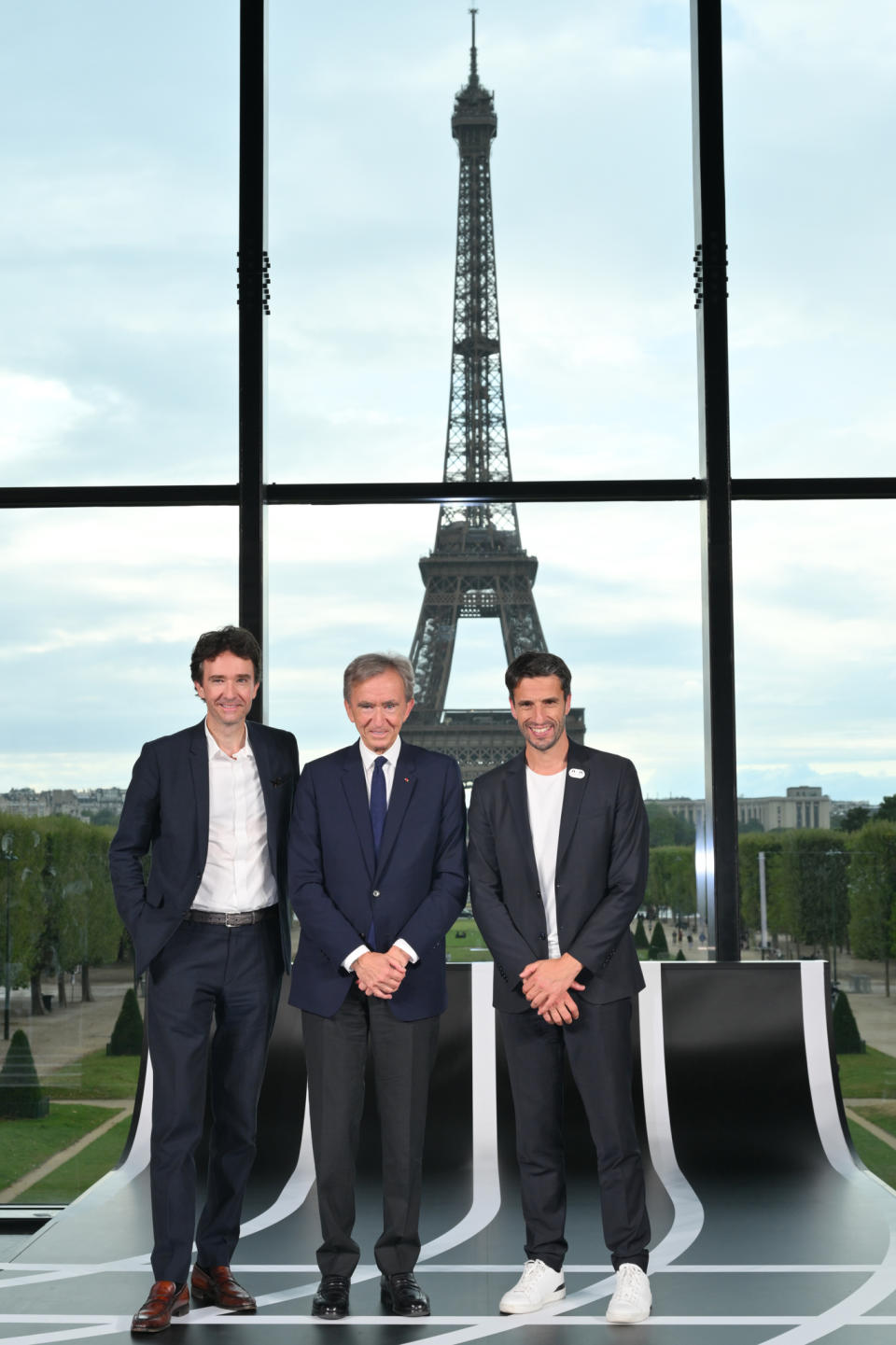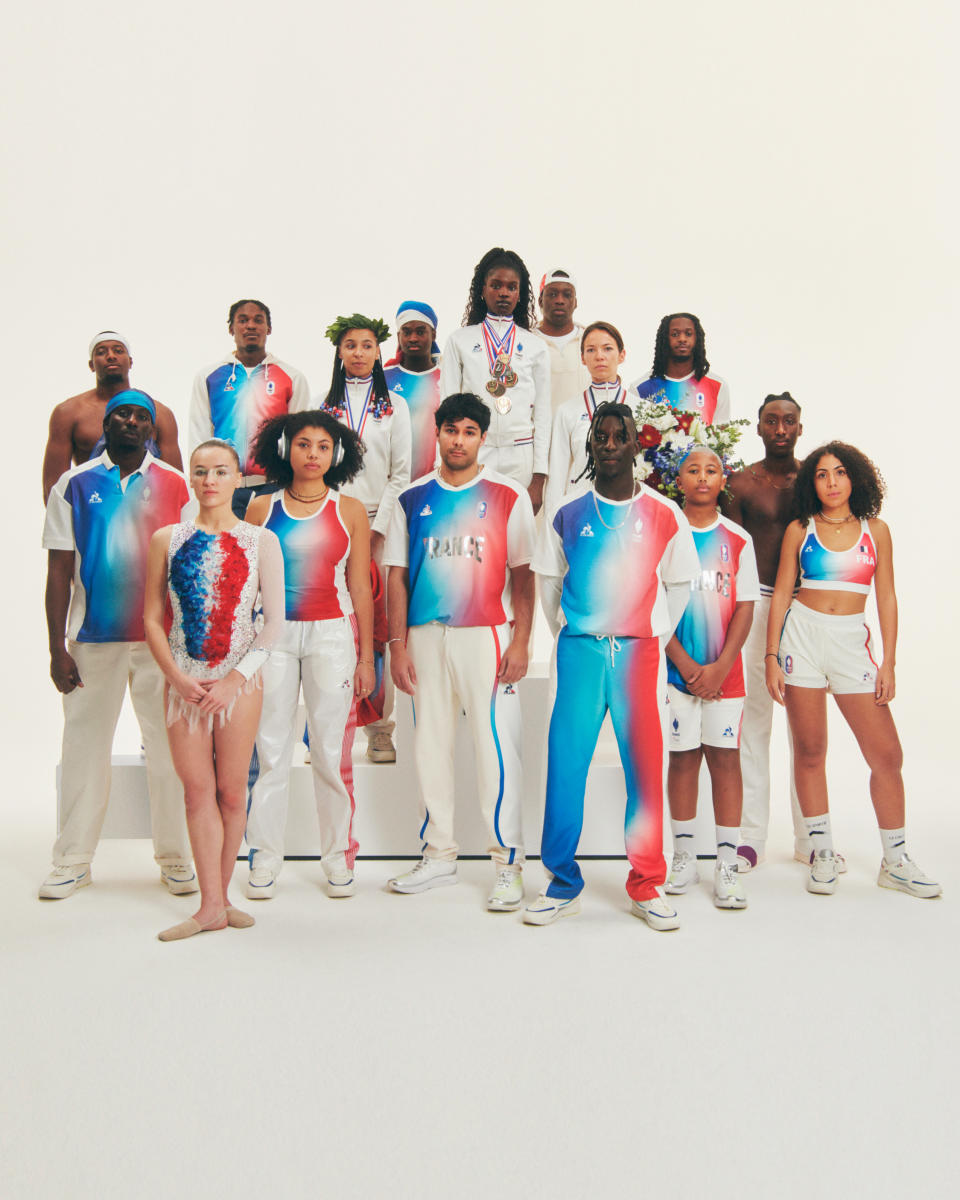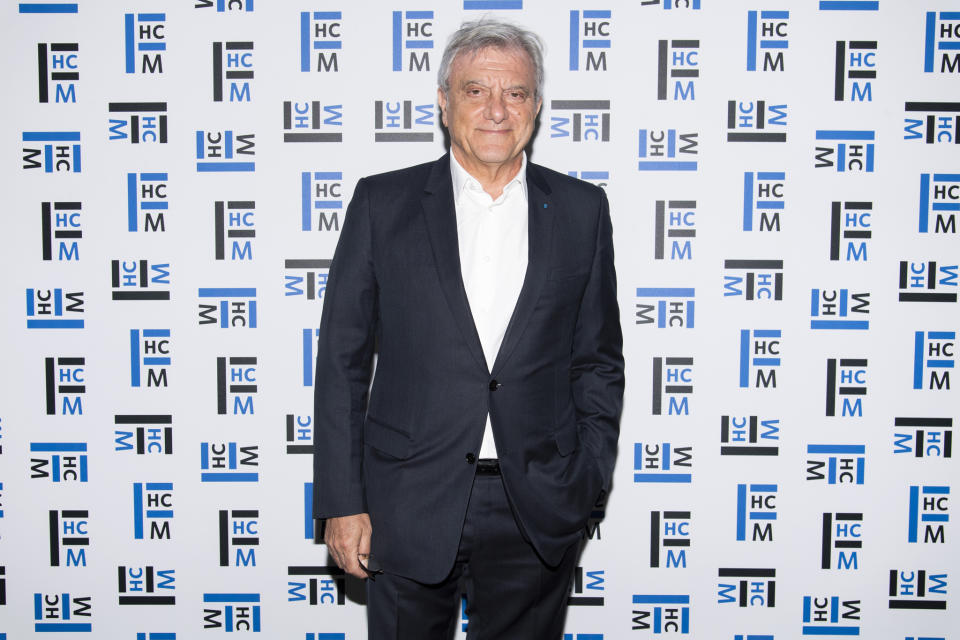French Federation Says Fashion Weeks on Track as Paris 2024 Olympics Near

PARIS — The Paris men’s and haute couture shows in June are on track despite preparations for the Paris 2024 Olympic Games that are set to paralyze sections of the French capital from April, organizers said.
In a joint interview, Bruno Pavlovsky, president of the Fédération de la Haute Couture et de la Mode, or FHCM, and Pascal Morand, its executive president, sought to reassure participants despite a number of remaining uncertainties heading into the final stretch of planning for the Games, billed as the biggest event organized in France.
More from WWD
“After several months of discussions, the situation has become clearer and we are feeling optimistic about our ability to do what we need to do for the men’s and haute couture weeks in June,” Pavlovsky said.
“We’re not saying it will be super flexible and easy. We have to adapt. But we are saying that everyone is doing their best to ensure that all the fashion weeks take place in the best conditions for everyone concerned,” he added.
As reported, French fashion’s governing body moved forward the dates of the fall 2024 edition of Paris Couture Week to avoid a clash with preparations for the Olympic Games, due to run from July 26 to Aug. 11, and the Paralympic Games, from Aug. 28 to Sept. 8.
The men’s fashion week is scheduled for June 18 to 23 while the haute couture shows are set to take place from June 24 to 27. Usually, a week separates the men’s shows and haute couture week in summer.
The federation has a team liaising with the Paris police, city hall, the Olympic and Paralympic Games Organizing Committee and the Interministerial Delegation for the 2024 Olympic and Paralympic Games, as well as key ministries, as it fine-tunes the schedules.

While officials warned last year that the city’s logistics are becoming increasingly challenging, they were keen to maintain a positive tone about the Olympics, which are being sponsored by luxury group LVMH Moët Hennessy Louis Vuitton to the tune of 150 million euros.
Anticipation is key, with fashion houses being asked to file applications for event permits with the Paris police two months ahead of time, versus 15 days previously, in order to comply with tightened security measures amid a heightened risk of terrorist attacks.
“Before, you could decide to organize a showroom or event at the last minute,” noted Pavlovsky, who is president of fashion and president of Chanel SAS.
“It’s a little destabilizing, but I have to say that everyone has done their part so far, and I think the strength of the federation has also been to help everyone adapt to a situation which I understand is not easy for everyone,” he added.
At least three quarters of the federation’s members have confirmed they will take part in the men’s and couture shows and the number is rising, Morand said.
“We’re working meticulously and systematically on all the parameters,” he said, listing locations, traffic, security, hospitality and accessibility as key concerns.
While organizers have narrowed down the list of possible venues, they’re still waiting for the final version of the traffic plan that will set out security perimeters around locations hosting competitions.

The Games will transform the city’s iconic landmarks into sporting venues, with plans to build a volleyball stadium at the foot of the Eiffel Tower and to host BMX and skateboard competitions on Place de la Concorde, among others.
The opening ceremony on the Seine river is expected to be watched by 326,000 ticketholders, in addition to onlookers, with construction across town slated to begin months in advance.
“There are areas of central Paris that will definitely be more difficult to access. But having said that, the door is not completely closed,” said Morand, adding that the federation is negotiating to secure a centralized location where smaller brands can show.
It’s keeping its members updated via regular newsletters and will aggregate information in a guide to be posted on its website, fhcm.paris. There’s also a dedicated email address for queries, parisgames24@fhcm.paris.
Officials noted that after an initial spike, rates for hotel rooms and flights in June appear to have come down. “They are now at levels that are not unreasonable,” Morand said.
The government has a strong incentive to protect the fashion sector, which represents 154 billion euros in direct turnover and generates 1 million jobs in France, according to a study published by the Institut Français de la Mode in 2018.
Pavlovsky said the increased coordination with authorities during this period would benefit Paris Fashion Week in the future by allowing for better forward planning and information sharing.

Parallel to gearing up for the Olympics, the federation is preparing for the future by reforming its statutes for the first time since 1973, when ready-to-wear designers joined haute couture houses under the same professional umbrella.
Its executive committee has voted unanimously to abolish its three branches — the Chambre Syndicale de la Haute Couture, the Chambre Syndicale de la Mode Féminine and the Chambre Syndicale de la Mode Masculine — in order to group all members in a single legal entity under the FHCM banner.
They will be replaced by three sectoral committees headed by the current branch presidents: Sidney Toledano, adviser to LVMH chairman and chief executive officer Bernard Arnault, for couture; Anouck Duranteau-Loeper, CEO of Isabel Marant, for women’s fashion, and Rick Owens CEO Elsa Lanzo for men’s fashion.
“This is not just an administrative simplification. We’re also getting ready to tackle the big challenges of tomorrow,” Pavlovsky said.
Streamlining the structure of the federation should free up resources to defend members’ interests both in Paris and in Brussels as governments prepare to enact sweeping environmental regulations. Other key areas include job training, labor laws, intellectual property and digital services.
“Our role has changed in the last five years. It used to be about managing calendars and show venues. Now that’s just a small portion of our activities and we’re increasingly proactive on major social issues such as sustainability,” he said.
Best of WWD


